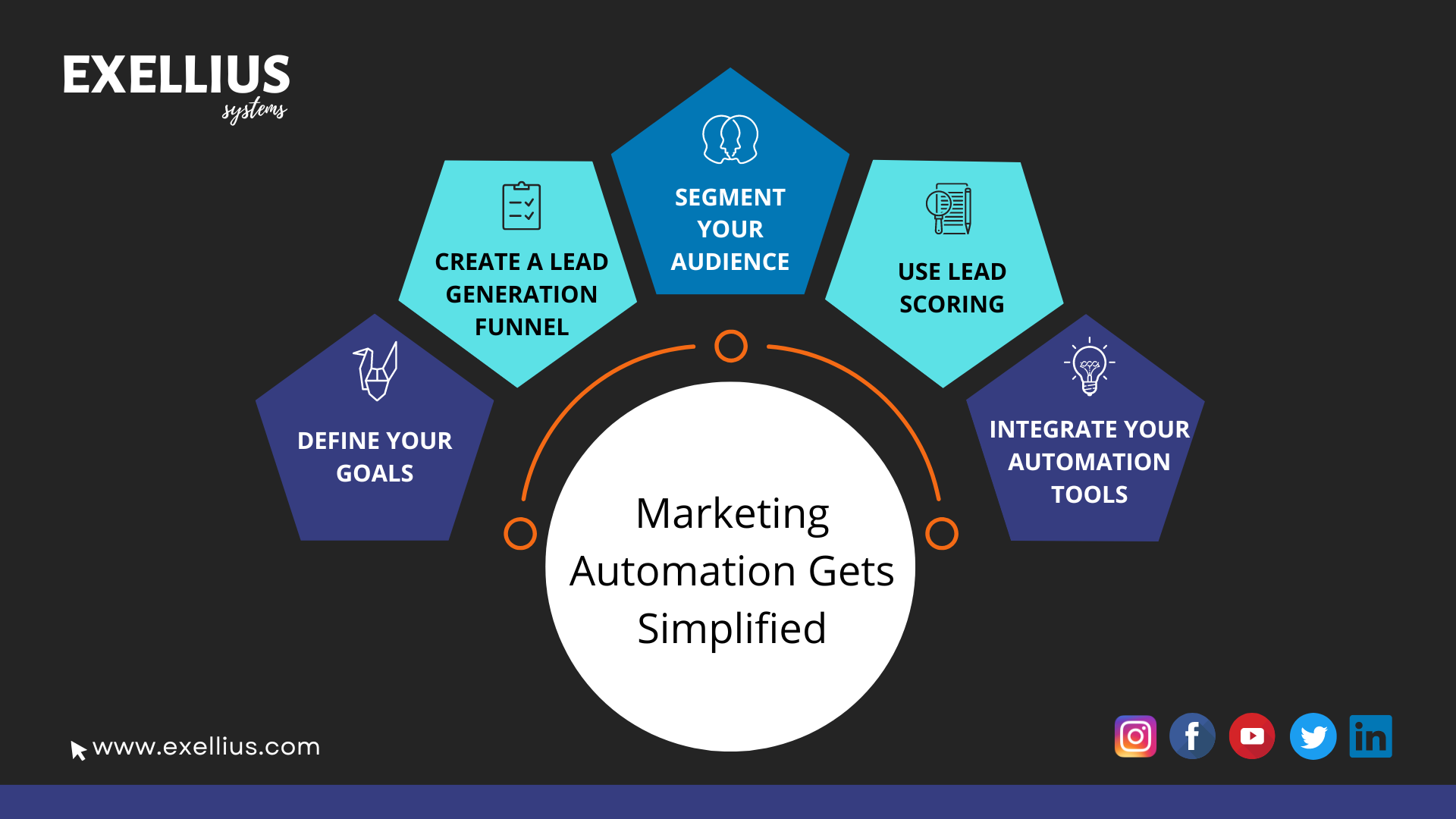
Marketing automation has been a game-changer for businesses looking to streamline their marketing efforts and drive revenue growth. However, implementing marketing automation can be a daunting task for many B2B Lead Generation businesses, especially when it comes to lead generation. In this blog, we’ll explore how marketing automation can be simplified for B2B lead generation and how businesses can get started with it.
Firstly, let’s define what marketing automation is. Marketing automation refers to the use of software tools to automate repetitive marketing tasks such as email marketing, social media marketing, lead nurturing, and lead scoring. Marketing automation allows businesses to target their audience with personalized messages at the right time, improving the efficiency and effectiveness of their marketing efforts.
Define your goals: Before you start implementing marketing automation, it’s essential to define your goals. What do you want to achieve with marketing automation? Do you want to generate more leads, nurture existing leads, or close more deals? Once you have a clear understanding of your goals, you can select the right marketing automation tools to help you achieve them.
Create a lead generation funnel: A lead generation funnel is a step-by-step process that takes your prospects from the first point of contact to becoming a customer. You can use marketing automation to automate this process, making it easier to manage and scale. Start by identifying the different stages of your funnel, such as awareness, consideration, and decision, and create targeted messages for each stage.
Segment your audience: One of the biggest advantages of marketing automation is the ability to segment your audience based on their behavior and interests. Segmenting your audience allows you to deliver more personalized messages that resonate with them, increasing the chances of conversion. You can segment your audience based on factors such as demographics, behavior, interests, and engagement.
Use lead scoring: Lead scoring is a way to rank your leads based on their level of engagement and interest in your product or service. By using lead scoring, you can prioritize your leads and focus your marketing efforts on the most promising ones. You can set up lead scoring rules based on factors such as website visits, email opens, and form submissions.
Integrate your marketing automation tools: To simplify marketing automation for B2B lead generation, it’s crucial to integrate your marketing automation tools with your CRM system. Integrating your tools allows you to track your leads throughout the sales funnel, from the first point of contact to becoming a customer. This integration also ensures that your sales and marketing teams are aligned and working towards the same goals.
According to Grand View Research, the global marketing automation market size is expected to reach USD 19.84 billion by 2027, growing at a CAGR of 13.6% from 2020 to 2027.
According to Forrester Research, companies that implement marketing automation increase their sales pipeline by an average of 10%.
A study by Lenskold Group found that businesses that use marketing automation to nurture prospects experience a 451% increase in qualified leads.
According to HubSpot, personalized calls-to-action convert 42% more visitors into leads than untargeted calls-to-action.
A survey by Ascend2 found that 63% of marketers consider generating leads and traffic to be their biggest marketing challenge.
According to Pardot, B2B marketers who implement marketing automation see a 70% improvement in lead-to-opportunity conversion rates.
A study by Salesforce found that companies that use marketing automation generate 2.5 times more leads than those that don’t.
According to Marketo, businesses that use marketing automation to nurture prospects experience a 20% increase in sales opportunities.
In conclusion, marketing automation can be simplified for B2B lead generation by defining your goals, creating a lead generation funnel, segmenting your audience, using lead scoring, and integrating your marketing automation tools with your CRM system. By simplifying marketing automation, B2B businesses can streamline their marketing efforts, generate more leads, and close more deals.


